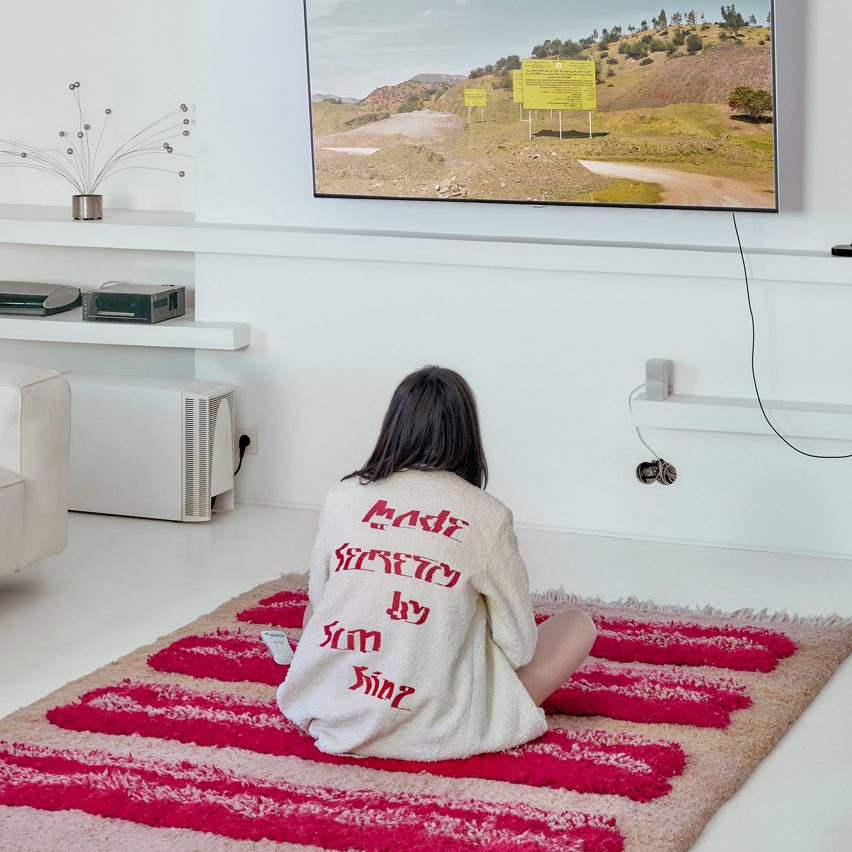
In this VDF x Alcova interview, Ismail and Adnane Tazi of homeware brand Trame discussed how their cross-cultural collections build "virtual bridges across the Mediterranean".
"By putting artisans directly in contact with designers, our brand aims to create products at prices comparable to local markets," the Morocco-born duo explained.
This guarantees "creative authorship" for craft communities on both the European and the African side of the Mediterranean sea while also providing them with access to an e-commerce platform, according to the designers.
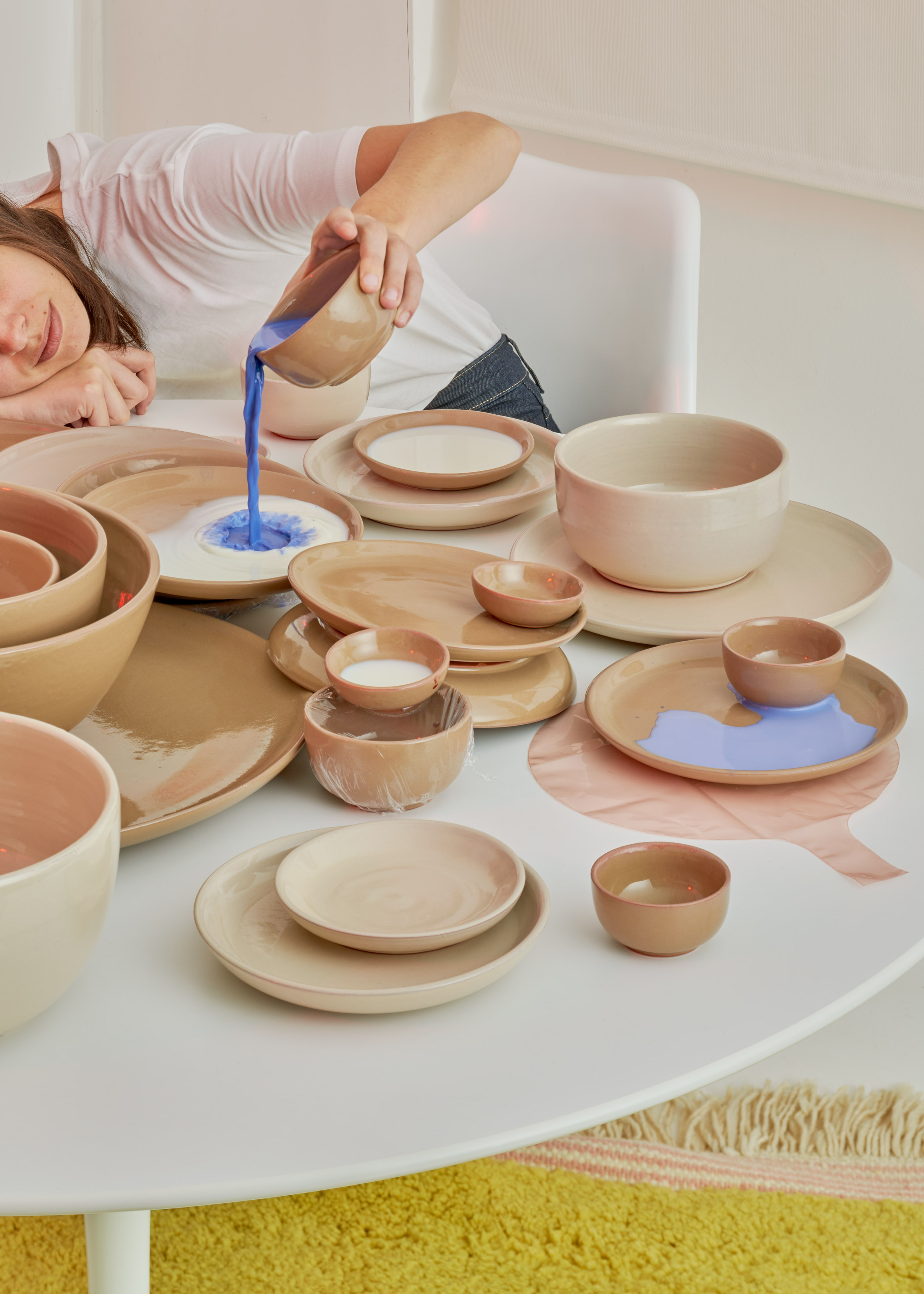
On a broader scale, the Paris-based brand hopes to foster a mutual exchange of different techniques and traditions.
"We are equally as interested in preserving time-bound aesthetic practices as in orchestrating improbable encounters – sometimes clashes – between different conceptions of making," said the siblings.
Trame, which was founded only a few weeks before France went into lockdown, was meant to present its latest collection during the Salone del Mobile furniture fair as part of a showcase by design platform Alcova.
But in light of the pandemic, the Entwine series of colour-block rugs and glossy ceramics, created in collaboration with designer Maria Jeglinska, is now being presented here as part of the Virtual Design Festival.
Below, the Trame founders spoke to the Alcova team about their launch and how the brand's philosophy has taken on a new poignancy due to the physical and social constraints imposed in response to the coronavirus outbreak.
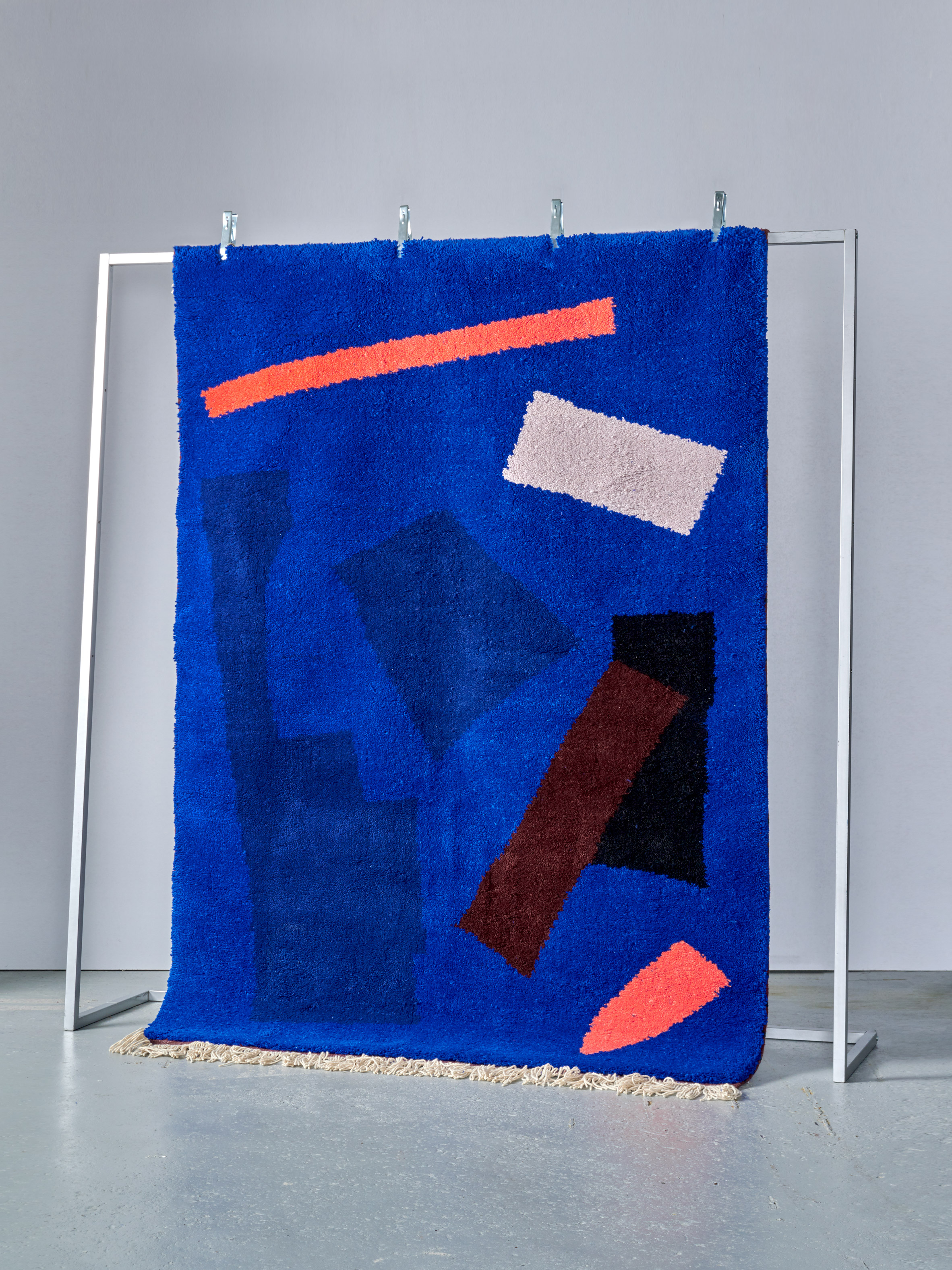
VDF x Alcova
Exhibitor: Trame
Website: trameparis.com
Email: info@trameparis.com
Alcova: The narrative and business model of Trame are based on the poetics of travel and cultural exchange. Does the current crisis undermine your approach?
Trame: Our project is surely an invitation to travel but it is equally a celebration of Mediterranean culture through local craftsmanship. Since day one, in a pre-pandemic era, we have worked to promote collaboration, short-cycle production and artisan communities active in their places of origin. By putting artisans directly in contact with designers, our brand aims to create products at prices comparable to local markets but with the added investment of creative authorship, personal contact with makers and e-commerce accessibility.
In a world where we will still travel, but maybe less than before, Trame’s virtual bridges across the Mediterranean are culturally and economically even more valuable. For now, this forced pause gives us time to reflect before moving forward with our next milestone event in Paris at Le Bon Marché Rive Gauche in September.
Alcova: Has the current situation provoked new ideas or projects for Trame?
Trame: Trame’s fundamentals matter now more than ever. We are optimistic that the world will start moving again, with more awareness and with respect for limitations imposed for the common good. For our next capsule collection, we are exploring the possibility of a special project in Riace, Calabria.
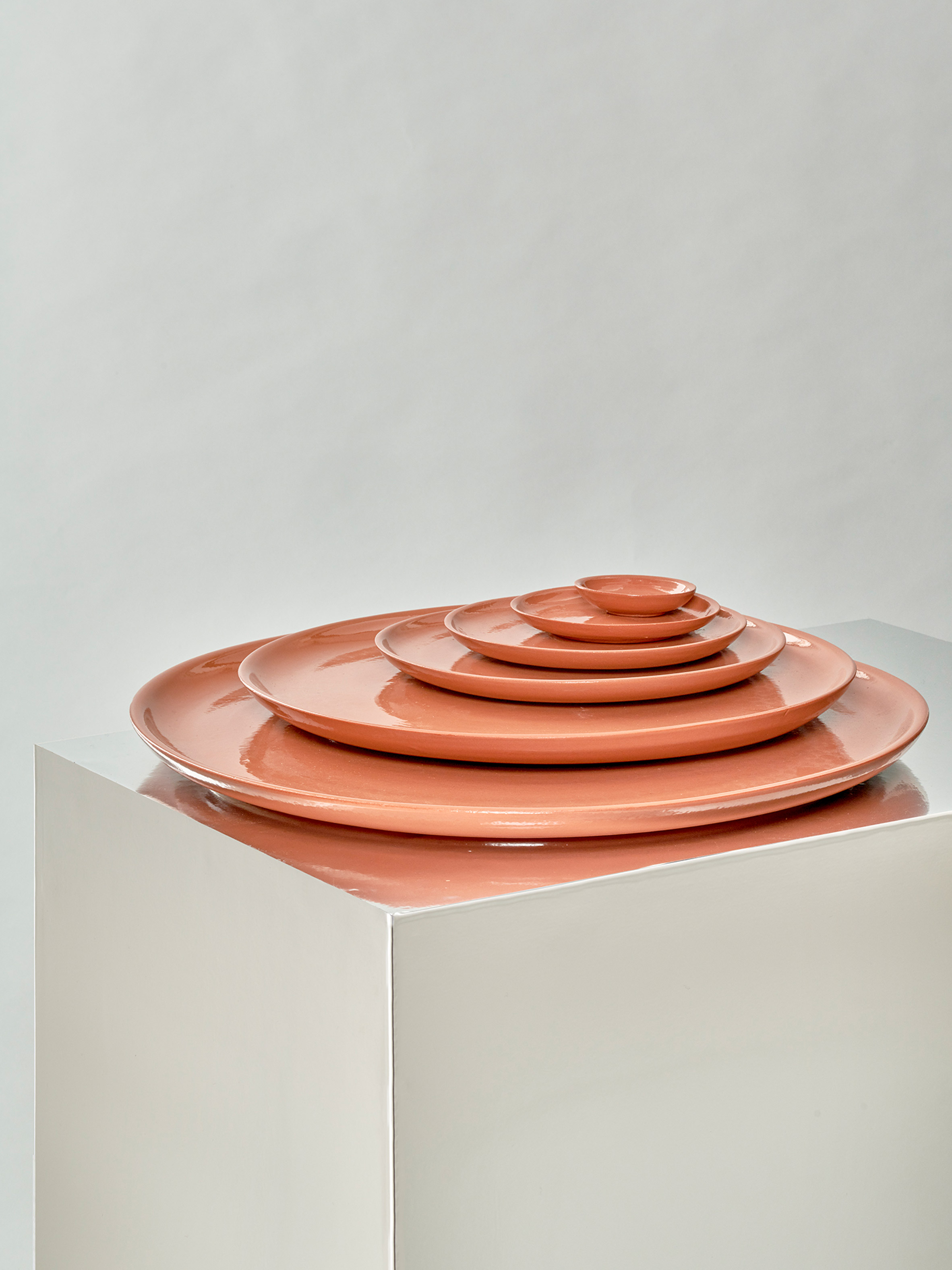
Through Studio Vedèt, the Italian-based studio who guide the artistic direction of our brand, we learned of this small Mediterranean town, a famous case study of migration and integration within the larger framework of politics, economy, and industry in southern Italy.
Trame believes that cultural exchange could produce value and symbolic significance for sites like Riace and thus we are investigating possibilities for collaboration between the local artisan community and designers in the region. Now that restrictions are being eased in Europe, we hope to establish contact with local partners in the near future.
Alcova: In April, you planned to launch Entwine, a new collection of carpets and ceramics designed by Maria Jeglinska. What outcomes do you anticipate as you present your rug with Alcova through this Virtual Design Festival?
Trame: We’re convinced that the strong colours and beautiful contrasts of Maria's rugs will pierce the screens of Dezeen readers! All of our rugs are currently available through our online shop. The production of Maria’s ceramics was paused temporarily due to the pandemic crisis but they will be fully stocked for purchase by the end of the month.
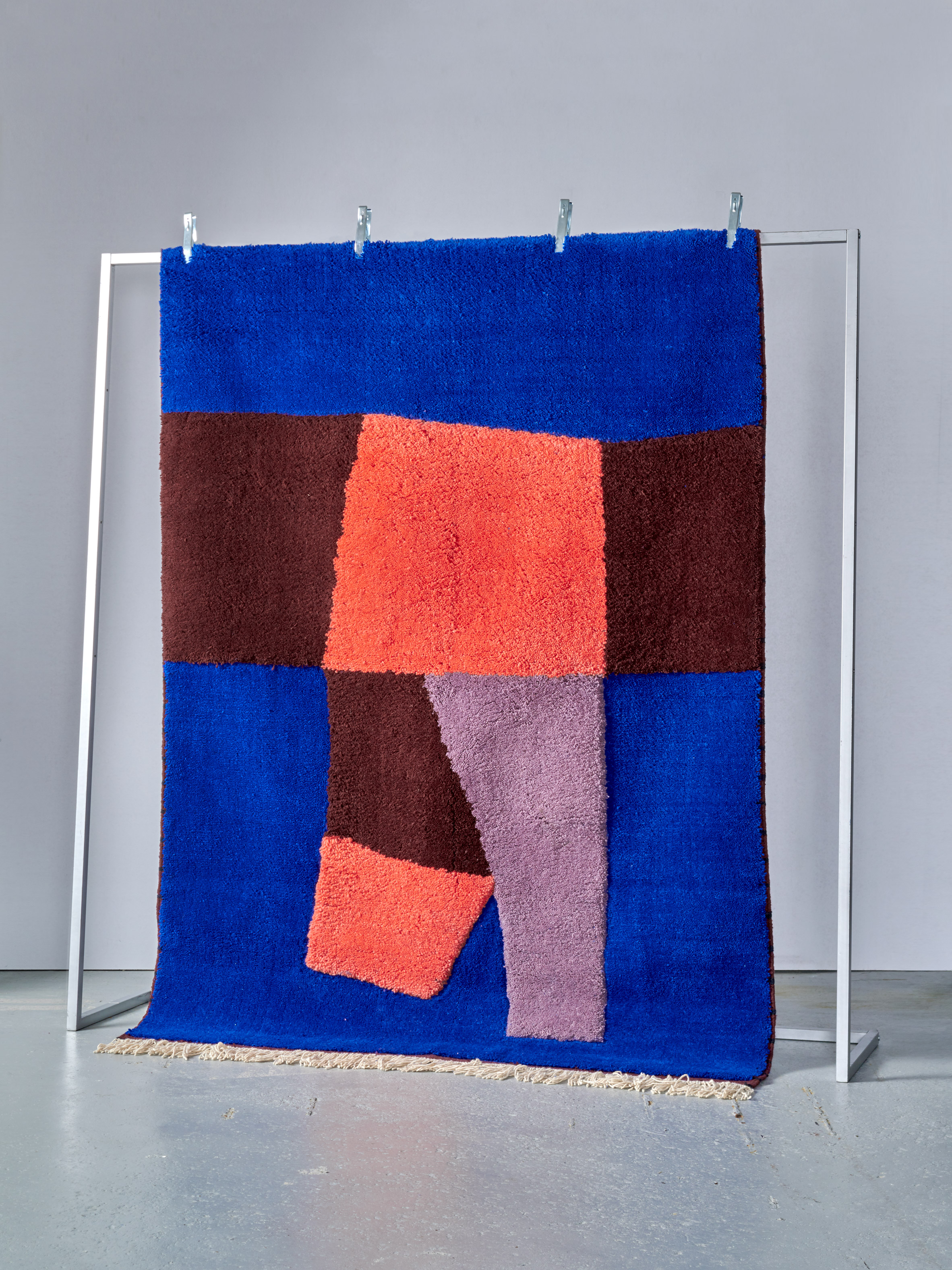
In general, we are enthusiastic advocates for convivial encounters in "real" space. We do not expect online connections to replace a shared physical materiality, although as a brand dedicated to e-commerce, we find other benefits in this approach. This virtual festival should continue and find its niche, in coexistence with physical gatherings when they can safely resume.
Alcova: Contemporary aesthetics and motifs versus craftsmanship with historical and local roots – how do these forces come together in your brand?
Trame: We were born and raised in Morocco and we could not fail to notice over the past few years an incredible boom in international interest regarding our local craftsmanship. But it was our conscious choice that Trame in contrast to other brands, would not be based exclusively on one ethnic artisanal tradition.
With time, our products will be manufactured not only in Morocco but also in Italy, France, Greece, Algeria and other countries around the Mediterranean. We are equally as interested in preserving time-bound aesthetic practices as in orchestrating improbable encounters – sometimes clashes – between different conceptions of making. The generosity of these collaborations leads to fruitful design outcomes that cannot be predicted in advance.
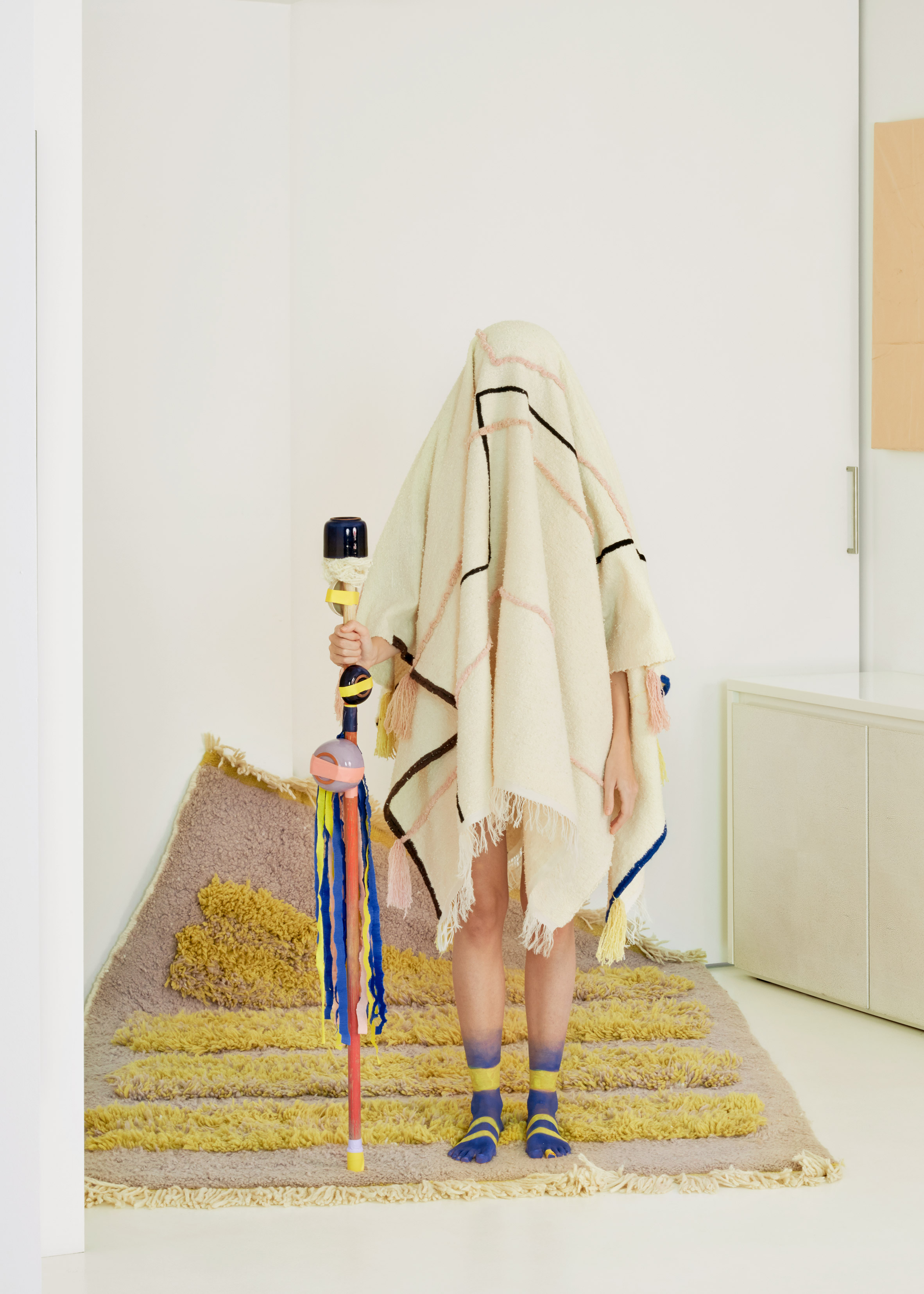
Alcova: Trame embraces cross-border material cultures. After the pandemic, is a future without borders even more urgent?
Trame: We think imaginative speculation is a powerful tool to find space for artistic exploration between given material realities and historical traditions. Our first collection, designed by Maddalena Casadei, Maria Jeglinska and Julie Richoz, was inspired by Madame de Blois, who was the daughter of King Louis XIV and received an engagement proposal from Moulay Ismail, one of Morocco's most influential sovereigns.
The design collection was inspired by the possibility of a marriage that ultimately never took place. How would it have altered the balance of Mediterranean power? As it happened, the trajectory of migration developed in one direction but what if it flowed the other way? After the pandemic, experts predict an increase in both border restrictions as well as migratory pressures due to economic shocks throughout global supply chains. Therefore, we believe that our message remains crucial and must be expressed even more decisively.
Virtual Design Festival is the world's first online design festival, taking place on Dezeen from 15 April to 10 July 2020.
Alcova is a Milan-based platform established by Italian practices Space Caviar and Studio Vedèt, which champions independent design through a programme of exhibitions. The team consists of
Valentina Ciuffi, Joseph Grima, Martina Muzi, Tamar Shafrir and Marco De Amicis.
The VDF x Alcova collaboration presents interviews with eight studios that were set to be featured at the platform's presentation during Salone del Mobile this year.
The post Trame orchestrates "improbable encounters" between Mediterranean craft practices appeared first on Dezeen.
from Dezeen https://ift.tt/3cqdUEU

No comments:
Post a Comment